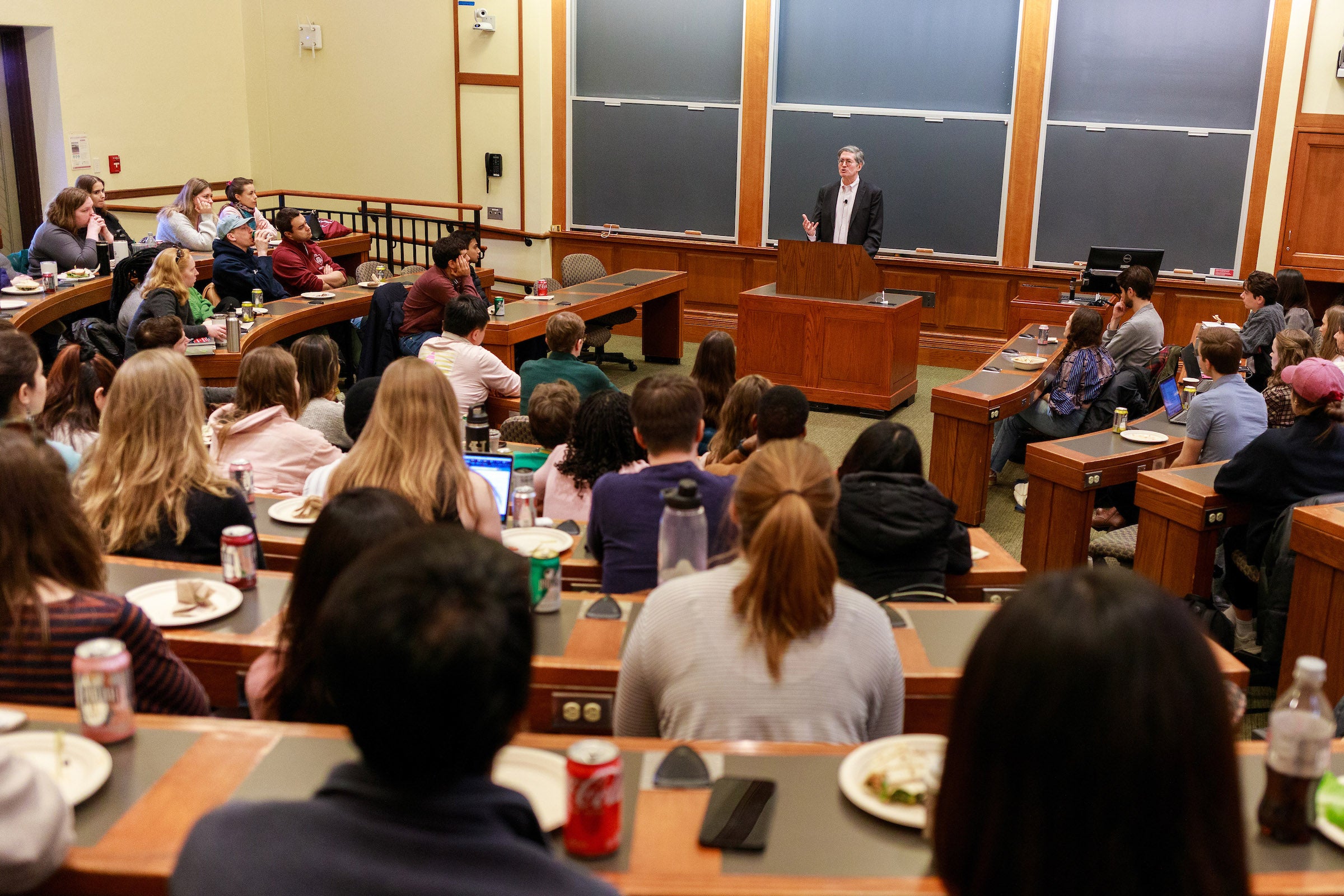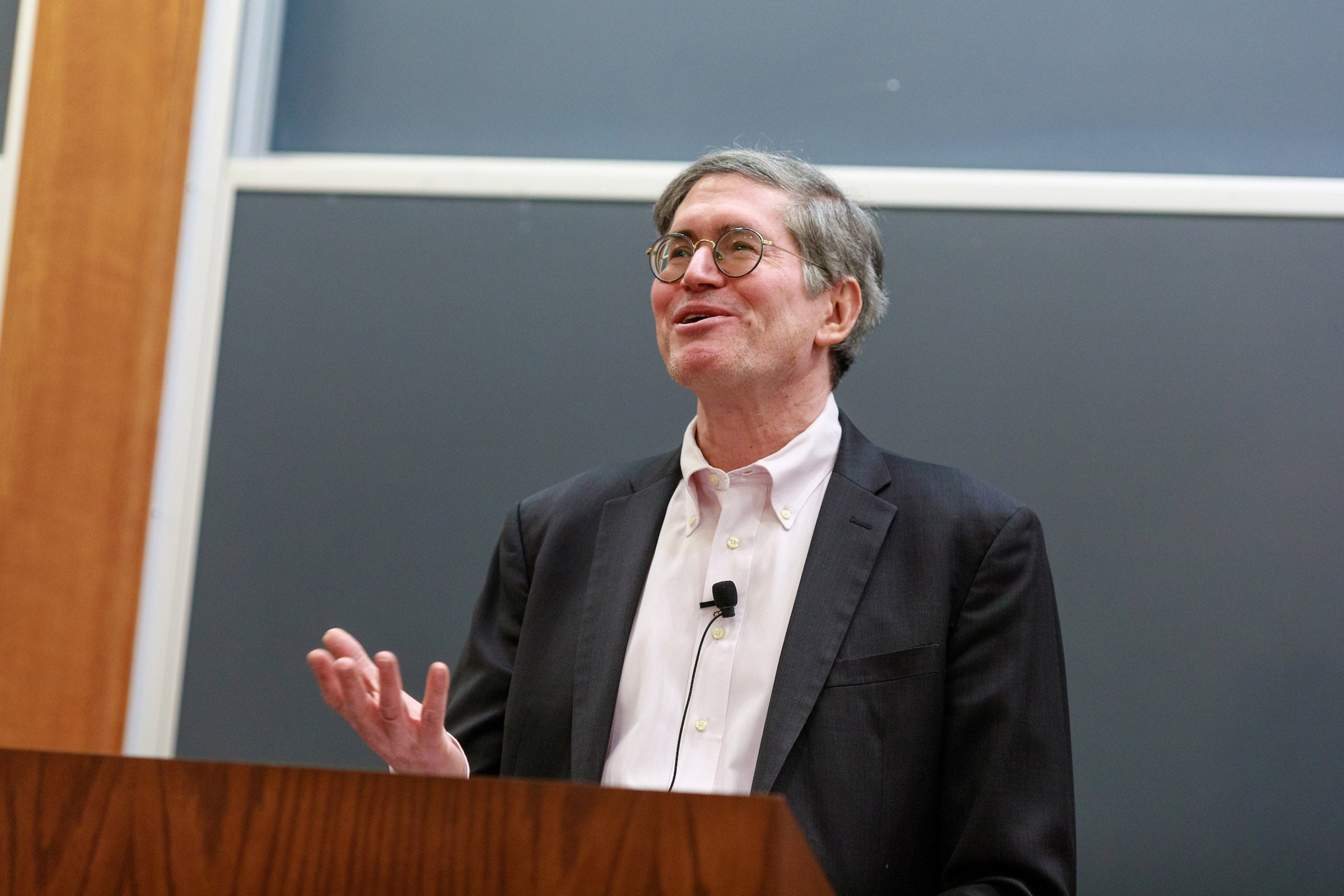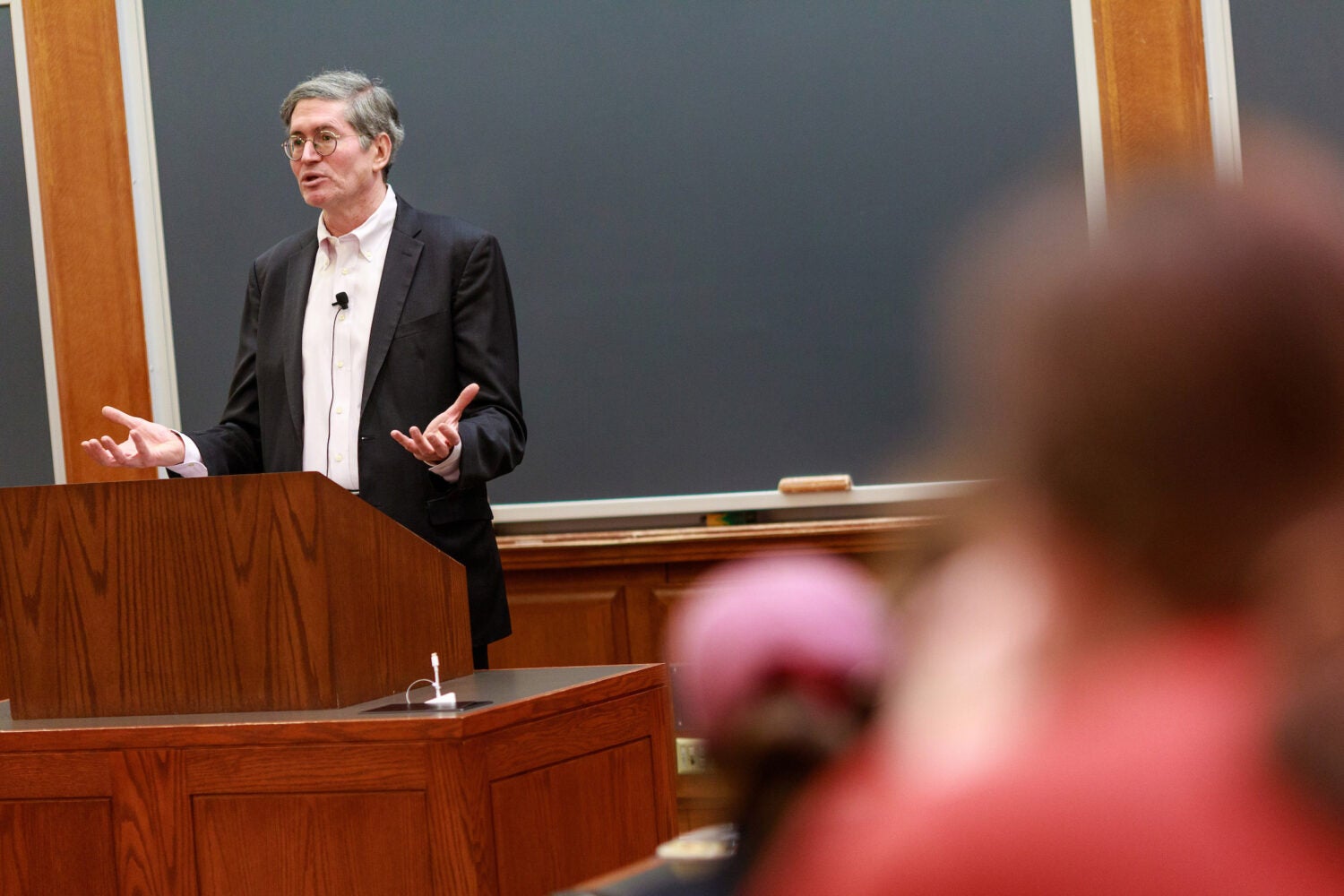In remarks to the graduating class of J.D. and LL.M. students, Harvard Law School Professor Michael Klarman celebrated some of his personal heroes in the history of civil rights and women’s equality, but also declared that the examples they set are more necessary now than ever before.
“I think American democracy is more under threat now than it has been in the lifetime of anyone currently alive,” he said. “If you want to continue living in a democracy, that is not a spectator sport. Some of you are going to embark on legal careers in which you struggle for democracy, and I cannot tell you how much I admire what you are going to do. But the rest of us still need to do something. You need to vote, get your friends to vote, write postcards, phone bank. You need to act as if your contributions will make a difference because collectively, I think that is very true.”
Klarman’s admonitions came during the first in a series of four Last Lectures, speaking events sponsored each spring by the class marshals representing J.D. and LL.M. students who will graduate in May. In this Harvard Law School tradition, selected faculty members take the opportunity to impart some insights, advice, and final words of wisdom to graduating students.

Klarman invoked the lives and work of civil rights lawyers Thurgood Marshall and Charles Hamilton Houston, as well as Supreme Court justice Ruth Bader Ginsburg, all of whom, he said, faced cultural barriers that threatened their livelihood — or their lives, in the case of civil rights lawyers during the Jim Crow era.
“Marshall was nearly lynched in 1946 while he was defending people who were charged in connection with a race riot in Columbia, Tennessee,” he said. As late as the early 1960’s, two NAACP lawyers in the deep South, Z. Alexander Looby and Arthur Shores, had their homes bombed when they brought school desegregation lawsuits. An added challenge was the outright racism evidenced by many white jurors and even some judges; Klarman noted that James McReynolds — whom he called “the worst human being ever to sit on the United States Supreme Court” — once turned his chair and showed his back to Houston, who was arguing a desegregation case.
“If you want to continue living in a democracy, that is not a spectator sport.”
Womens’ rights lawyers, he said, faced “analogous, but not identical hurdles” when arguing discrimination cases before male jurists. In many cases, these included the simple inability to be taken seriously. In 1946, for instance, the Supreme Court considered whether women could sit on juries in states where they were technically allowed to serve.
“Internal records from that case make it clear that the justices saw it as an occasion to joke with each other,” Klarman said. Even Justices William Douglas and Felix Frankfurter, who famously disliked each other, were able to trade wisecracks about it. Thirty years later, Ginsburg received a similarly condescending response when challenging women’s exclusion from juries in Missouri. “One of the justices leaned over and asked, ‘You won’t settle for putting Susan B. Anthony on the new dollar then?’”

Each of these lawyers, Klarman said, did some of their most important work outside the courtroom. “Black civil rights lawyers such as Marshall and Houston saw part of their role as mobilizing African Americans in the South to demand vindication of their rights, to challenge an oppressive racial status quo, to encourage to believe that progressive racial change was possible.”
Likewise, Ginsburg “devoted at least as much time to educating people about sex discrimination as she did to litigating against it,” he said. When her female students at Rutgers in the ‘60s asked for a course on sex discrimination, she spent a month in the library reading every relevant case and law review article. She wound up preparing one of the first courses on the subject, and one of the first casebooks.
Shifting into the present, Klarman apologized in advance for statements that might be construed as partisan. He noted too that measures to protect or reinforce democracy may at times be seen as having a partisan valance. Yet, he said, “There are moments in our history when doing the just thing may require doing something that has incidental benefits to one of our main political parties.” He recalled the passage of the 15th Amendment during Reconstruction, when Republicans led the charge for Black voting rights, noting that, at the time, “the Republicans were not oblivious to the fact that African Americans would vote mainly Republican.”
Currently, he said, we’re faced with a very different Republican Party — “where 70 percent believe that Biden is not a legitimate president, 60 percent believe [former President Donald] Trump did not have classified documents at Mar-a-Lago, and 60 percent believe that January 6th was a peaceful, legitimate political discourse.” And if addressing vital questions of democracy and equality ultimately disfavor the Republican Party, he urged, a commitment to just principles must still prevail.
He urged the graduating class to be part of the solution. “We have come to expect great things from you,” he said. “I know that you won’t let us down.”
Want to stay up to date with Harvard Law Today? Sign up for our weekly newsletter.
